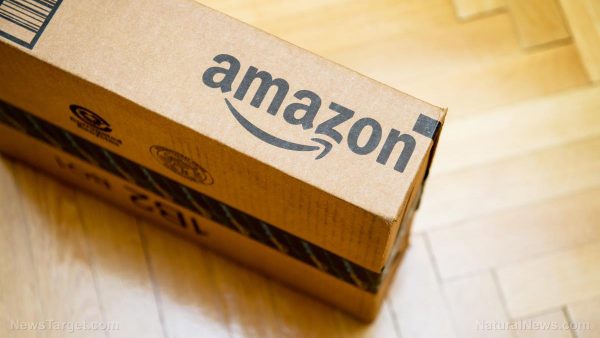 Parler
Parler Gab
Gab
Amazon's monopolistic practices preventing proper growth in the free market
The FTC's complaint and lawsuit argue that Amazon is a monopoly and misuses its powers as the largest online retailer in the United States. "The complaint alleges that Amazon violates the law not because it is big, but because it engages in a course of exclusionary conduct that prevents current competitors from growing and new competitors from emerging," announced the FTC in a press release. "By stifling competition on price, product selection, quality and by preventing its current or future rivals from attracting a critical mass of shoppers and sellers, Amazon ensures that no current or future rival can threaten its dominance," continued the FTC. "Amazon's far-reaching schemes impact hundreds of billions of dollars in retail sales every year, touch hundreds of thousands of products sold by businesses big and small and affect over a hundred million shoppers." With this position in the market, the FTC claims that Amazon is able to force sellers to use its warehouses and delivery services, thereby inflating costs for consumers and sellers alike. The FTC also argued that Amazon fights off efforts by sellers on its platform to offer products more cheaply on other platforms. In its filing, the FTC even quoted a seller who said: "We have nowhere else to go and Amazon knows it." The FTC is asking the court for a permanent injunction ordering Amazon to stop its unlawful conduct. "Left unchecked, Amazon will continue its illegal course of conduct to maintain its monopoly power," said the FTC in its complaint. The FTC is also asking the court to "put an end to Amazon's illegal course of conduct, pry loose Amazon's monopolistic control, deny Amazon the fruits of its unlawful practices and restore the lost promise of competition." The FTC is further asking the court to consider "any preliminary or permanent equitable relief, including but not limited to structural relief, necessary to restore fair competition." A structural relief order would force a company to sell its assets, such as a part of its business. Learn more about tech giant Amazon and its founder Jeff Bezos at JeffBezosWatch.com. Watch this video from Reuters discussing the FTC's lawsuit against Amazon over allegations of illegal pricing practices. This video is from the High Hopes channel on Brighteon.com.More related stories:
Amazon rolling out PAY-BY-PALM services as new payment tech at all Whole Foods Market stores. Sen. Bernie Sanders launches probe into Amazon's labor practices. Amazon-owned Ring agrees to multimillion settlement with FTC over privacy violations – including SPYING ON CHILDREN. THE PRICE OF GUILT: Amazon agrees to pay $30.8 million for violating child privacy laws and other privacy lapses – but denies any wrongdoing. Amazon becomes first company ever to lose $1 trillion in market value. Sources include: Breitbart.com Reuters.com CNBC.com enGadget.com Brighteon.comPoor Filipinos surviving on repurposed LEFTOVER FOOD from garbage dumps called “PAGPAG”
By Ramon Tomey // Share
Solar researcher warns of solar activity decrease, imminent MINI ICE AGE and GLOBAL FAMINE by 2030
By Belle Carter // Share
Governments continue to obscure COVID-19 vaccine data amid rising concerns over excess deaths
By patricklewis // Share
Tech giant Microsoft backs EXTINCTION with its support of carbon capture programs
By ramontomeydw // Share
Germany to resume arms exports to Israel despite repeated ceasefire violations
By isabelle // Share










